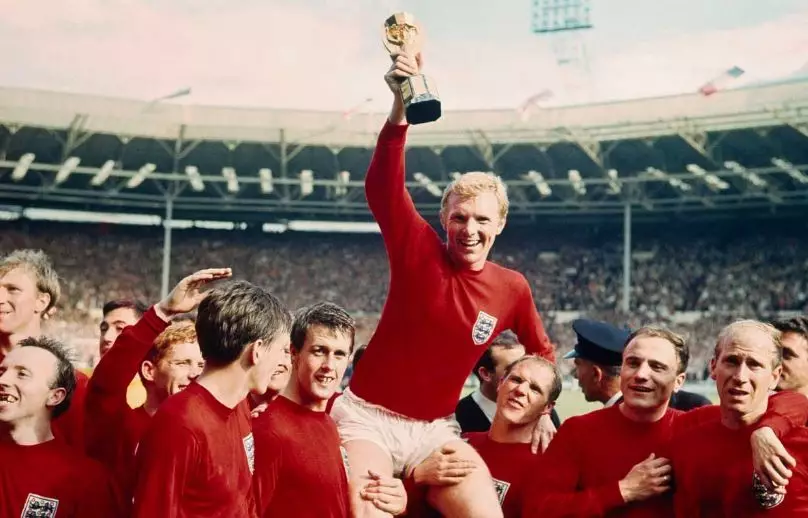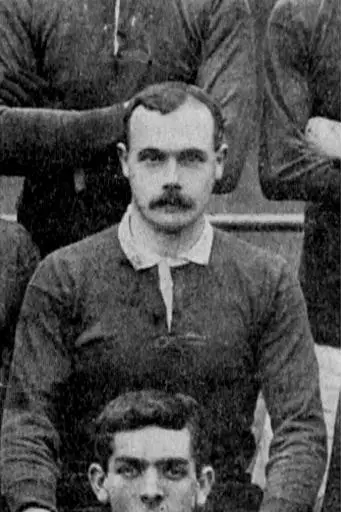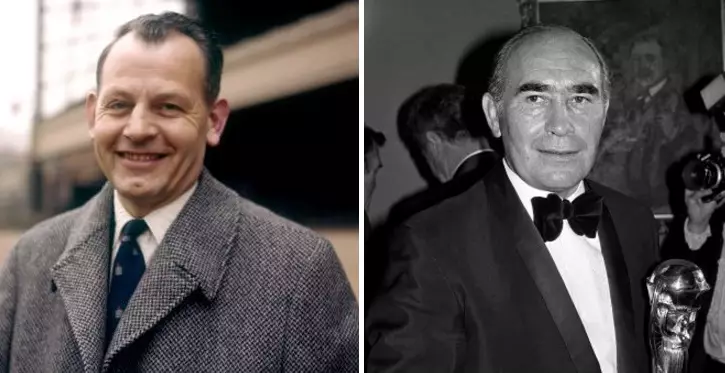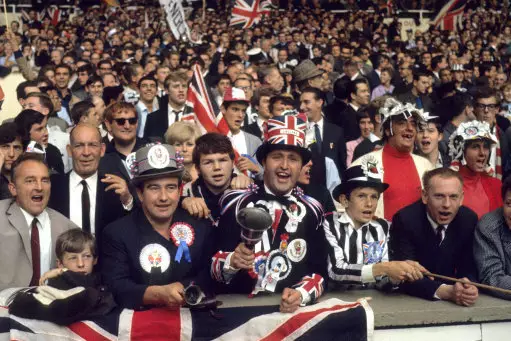
Featured image credit: PA
50 years ago today, Sir Bobby Moore held aloft the Jules Rimet trophy to 96,000 fans inside Wembley Stadium and 32 million more watching at home as England won the World Cup.
For many, it's the single greatest moment in English football's long history, making heroes of the players and of course legendary manager Sir Alf Ramsey.
But, really, that 4-2 victory after extra time against West Germany was probably the most damaging thing that's ever happened to English football.
Having invented the game and been the first country to codify it, organise it and create football leagues, there's always been an air of arrogance whenever English football comes up for debate.
It was actually Scotsman and chairman of Aston Villa William McGregor, back in 1888, who created the Football League, paving the way for the French, Spanish, Germans and Italians to create their own versions.
It was British coaches like John Barrow, Jack Greenwell and Alf Spouncer back in the early 20th century that went abroad to Spain, most specifically Barcelona, and taught our European neighbours how to play the beautiful game.
Advert

Alf Spouncer. Credit: PA
Going even further back and further afield, it was British workers that brought football to South America in the 19th century. English immigrants Thomas and James Hogg set up the first football club in South America in 1867 - Buenos Aires FC. And it was Brit Charles Miller who brought the game to the Brazilians in 1891.
English football has a lot to be proud of and rightly so. We brought the game to the world. But our proudest moment, holding aloft the World Cup and bringing football home, was also the most damaging.
Having invented the game, England were the dominant force in the world of football and that air of arrogance was justified. They beat France 15-0 at the Parc des Princes in 1906. They beat the Netherlands 8-1 on Dutch soil in 1907.
But their biggest problem was that they weren't playing many competitive matches. While they could turn up and spank almost anyone, their rivals had started the World Cup in 1930 in Uruguay, a competition England didn't enter until 1950.
Getting the opportunity to play and beat England was a big deal. We were generally considered the best. So what our footballing rivals did was simple: take the most forward-thinking British coaches and get them to teach them new styles of football that would rival and overtake the English.
And that's exactly what happened. Post-war, the likes of the then Soviet Union, West Germany, the Netherlands, France, Hungary, Italy and the South American nations like Uruguay, Brazil and Argentina were all starting to overtake the English at their own game.
Admittedly, they'd been playing competitive football at the World Cup in 1930, 1934 and 1938 before England started competing in 1950, but it gave them a competitive edge on the international stage that the English lacked.
So much so, English football was in a malaise. The heads of the FA were scratching their heads, wondering why England, the home of football, was starting to fall behind its rivals.
Alarm bells began ringing in 1950 when England went to their first World Cup as favourites, boasting huge names in the football world like Stanley Matthews, Tom Finney and Billy Wright, only to lose to a bunch of amateurs from the United States 1-0 at the Estádio Independência.
Uruguay went on to lift the trophy.
In the build up to the 1954 World Cup, England hosted an extremely strong Hungary side at Wembley in a friendly. England were humiliated 6-3, the first loss to a non-home nations side at Wembley, as Ferenc Puskas showed England that their approach to football was already out-dated.
A year later, England went to Budapest and lost 7-1. English football was officially well behind the times. But nothing much changed.
England went out in the quarter-finals of the 1954 World Cup to defending champions Uruguay.
In 1958, the England team was of course rocked by the Munich air disaster, but going out in the group stage was still a humiliation as they lost to the Soviet Union 1-0 in a play-off. Being the only team to play and not lose to eventual champions Brazil meant England were strangely proud of their tournament.
In 1962, England got out of their group and lost in the first knockout round against eventual champions Brazil. It was to be Walter Winterbottom's final game in charge having led England to the previous four World Cups.
Advert

Walter Winterbottom (left) and Sir Alf Ramsey (right). Credit: PA
Then Sir Alf Ramsey was installed as coach. There were clear problems with England and its football. We were playing an archaic style that our opponents had learned to overcome. Our players were hitting mental walls when it came to knockout games. Despite having good players, it just wasn't happening when it mattered - sound familiar?
And so Sir Alf shook England up, led them into a home World Cup and won it. English football was saved. We won a World Cup playing an English style of football. We beat Pele's rampant Brazil side and the ominously efficient West Germans in the final playing our way. There's nothing wrong with English football if you play it properly... and on home soil.
Just as England were starting to ask questions about whether the football culture, from grassroots all the way to the elite game, was good enough in England, we won a World Cup and papered over the cracks.
But the cracks were still there. And the cracks got wider. A failure on home soil would have revolutionised English football. That didn't happen because of that age-old English arrogance.
Advert

England fans at Wembley, 1966. Credit: PA
Despite a semi-final in the 1968 European Championships, it was back to quarter-final heartbreak at the World Cup in 1970 before a first ever failure to qualify in 1974. We again failed to qualify for the World Cup in 1978.
We've only had the one major competition semi-final to shout about since then, at the European Championships in 1996.
Since Sir Alf in 1966, England have had 16 managers (including Big Sam) that have tried and failed to bring back the spirit of '66.
But that's just it. England won the World Cup in 1966 because they had an unbreakable spirit, not because they were any more talented than some of their more illustrious and skilful rivals.
The old saying goes that form is temporary but class is permanent. England hit form at the 1966 World Cup. Their rivals still had the class.
But the old English arrogance mistook that victory for something that it wasn't. It wasn't a justification of old school English football culture. It wasn't a glorious indictment of the knowledge and skill of our players, coaches and managers.
It was simply one superb tournament from a good group of players with an inspiring manager and an unbreakable will to win.
And that's why, 50 years later, England is still in the malaise the 1966 World Cup victory papered over.
Words by George Pavlou
Featured Image Credit: